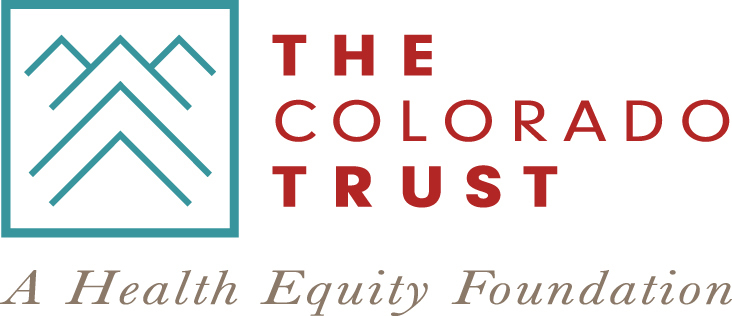With support from The Colorado Trust, a Cohort of 18 community organizing, direct service, and policy advocacy organizations are working to build a field of advocates that are capable of advancing systems changes that improve health equity in Colorado. This blog post describes a multilevel framework developed by the Cohort’s Racial Equity Team (“the Team”) to build the field’s capacity to understand and advance racial equity. We briefly describe these capacity-building efforts and highlight lessons learned through their implementation. We encourage readers to consult a recently released learning paper for more information.
The Cohort members believe that racist practices have negatively impacted the health of Coloradans for too long and that resistance to acknowledging racism’s continued salience has allowed racism to persist. As a result, the Cohort has decided to center race in its field-building efforts. This ultimately means, as one cohort member shared, that “you’re acknowledging and accepting that race plays a big role in any type of equity conversation” and that “it’s the foundation where you need to start.”
Lesson #1: Explicitly naming and centering race in health equity advocacy is important to assuring that race and racism do not get pushed aside in equity-focused efforts.
To keep racial equity at the center of the Cohort’s health equity field-building efforts, the Team identified four nested spheres of influence: individual Cohort members, Cohort organizations, Cohort partners, and the larger health equity advocacy field (see figure below). Then the Team identified ways in which they could build racial equity capacity within each of the spheres.

Lesson #2: Attending to multiple levels of mutually reinforcing growth and transformation better assures field-level benefits and the sustainability of change efforts.
To support growth in the first sphere, the Team contracted with a consultant to provide race-based caucusing. This decision was based on a belief clearly articulated by a Cohort member: “Racial equity work starts at the individual level—We can’t make organizational or systems change without changing ourselves.” The monthly caucusing sessions allowed Cohort members to take a deeper dive into their own personal experiences with race and racism, and to confront and deconstruct internalized white dominance and internalized systems of oppression, respectively. Building the racial equity capacity of individual leaders has helped them to navigate the resistance they may face within their respective communities when talking about race and advocating for health equity and, for some, work towards personal healing.
Lesson #3: Attention to individual journeys and healing is a necessary component of racial equity efforts.
To support growth in the second sphere, the Team hired a consultant group to help cohort organizations define their equity goals and transform their internal practices, policies, priorities and cultures in order to meet those goals. Accessing equity-focused organizational capacity-building support has helped prepare Cohort organizations to serve as anchors in a broader health equity advocacy field. This is an important role. As one Cohort member observed, “without strong organizations the field will fall apart.”
Lastly, to support growth in spheres three and four, the Team partnered with a group of consultants with expertise in facilitating connections and communications across difference, to conduct a series of community gatherings and trainings focused on racial equity. These investments in community forums have begun to foster shared understanding and language to have deeper policy-related conversations about health equity across community organizations: “Bringing more of the [racial equity] conversations that the cohort is having to a broader audience of other organizations and community members has given a broader base of understanding to this work.".
Lesson #4: Balancing the intensive but important work of racial equity-focused capacity building while also doing health equity advocacy work is difficult. Having flexible and adaptive consultants helps.
The Cohort strongly believes that the pursuit of racial equity is essential to the attainment of health equity. The Team took on the charge of ensuring that the Cohort’s focus on racial equity was not lost. They set the intention and vision for their work, developed the framework to target individuals, organizations, partners and the broader health equity advocacy field, and selected the consultants for the various capacity-building efforts.
Lesson #5: Having centralized stewardship of resources and strategies, and thoughtfully engaging consultants, can facilitate effective implementation and equitable participation in capacity-building efforts.
The ultimate goals of these multilevel capacity-building efforts are to confront and reform internalized and institutionalized racism and build will and power that will allow the people of Colorado to dismantle structural and racial inequities and build equitable systems so that all Coloradans can achieve their highest possible level of health.
Lesson #6: Given the sensitivity and emotional charge associated with confronting race and racism, it is critical to allow adequate time and space for developing a vision for the work, providing educational support, attending to readiness for this challenging work, and supporting hard conversations in order to achieve collective buy-in.
The achievement of health equity will require that racial inequities be addressed. As one Team member summarized:
“I think the centering of [race and racism] is so important because it’s an illness in this country and we’ve made so many efforts to bury it, to hide it. Part of addressing the illness is discovering it and understanding how it permeates everything. And part of getting there means making intentional efforts to uncover it, to lift it up, and to think about how we’re all implicated in that system, and in that structure, and the role that we need to play to dismantle it. I think it’s also important for the outcomes and goals that we set for ourselves because what we’re striving for has to include the vision of a world where people’s opportunity for health, opportunity for wellbeing is not determined by racism anymore.”
We invite readers to attend a webinar on August 27, 2019 at 2:30 – 3:30 p.m. that will dive more deeply into the development, implementation and results of the multilevel racial equity capacity-building efforts introduced here. Learn more and register for the webinar here.

